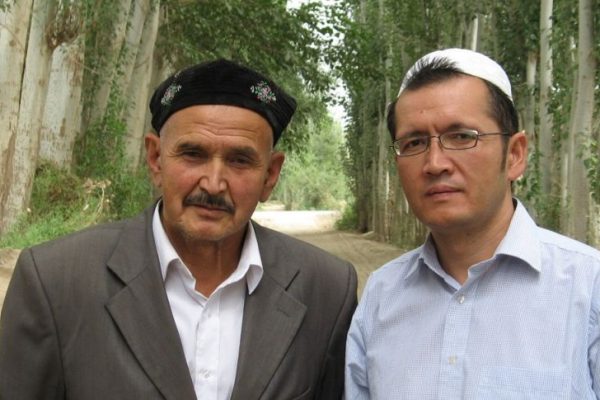The response of Muslim majority governments in the Middle East has faced much criticism for their lack of compassion. In particular Saudi Arabia, home of Islam’s holiest sites, has carried out many immigration raids and deported thousands of Rohingya Muslims back to Myanmar rather than provide a safe haven.
The response of Muslim majority governments in the Middle East has faced much criticism for their lack of compassion. In particular Saudi Arabia, home of Islam’s holiest sites, has carried out many immigration raids and deported thousands of Rohingya Muslims back to Myanmar rather than provide a safe haven.
The horrific events on August 25th, 2019 meant that a mass exodus of 750,000 Rohingya Muslims fled violent persecution from Myanmar’s northern Rakhine State into Bangladesh. International governments have yet to come up with a solid resolution to grant Rohingya Muslims citizenship, and guarantee their safety back in Myanmar.
Bangladesh
According to Bangladeshi Prime Minister Sheikh Hasina, there are 1.1 million Rohingya refugees in Bangladesh. And although Bangladesh has allowed camps near the town of Cox Bazaar, it is unable to cope with any more refugees. On 25th April 2020, the Bangladeshi government refused to allow in 500 Rohingya Muslims stranded onboard fishing trawlers in the Bay of Bengal. Foreign Minister AK Abdul Momen told Al Jazeera that the Rohingya refugees, who are believed to have been at sea for weeks, are “not Bangladesh’s responsibility.”
“Why should Bangladesh take responsibility every time?” Momen asked. “Bangladesh has already taken more than a million Rohingyas. We are running out of our generosity now.” India, Indonesia, and Sri Lanka, which all also surround the Bay of Bengal, have not offered much assistance in comparison to Bangladesh.
China
In September 2017, China said the international community should support the efforts made by Myanmar – China is a loyal supporter of the Myanmar government. The Chinese government also tried to lure Rohingya Muslims with money to return to Myanmar. According to a Bangladeshi official who attended a meeting in March 2019, (which was confirmed by BenarNews), the Chinese delegation offered some money to Rohingya Muslims to rebuild their homes in Rakhine State.
“They asked whether we would return to Myanmar if they gave us $6,000,” said Syed Ullah, the secretary-general of the advocacy group Arakan Rohingya Society for Peace And Human Rights (ARSPH). The Rohingya Muslims refused to return.
The Chinese government is greatly concerned with its massive infrastructure projects, which include a deep-sea port in Rakhine. If this went ahead it would mean that Myanmar would become an important part in President Xi’s flagship Belt and Road Initiative. China seems more concerned with its own economic wealth and has shown little sympathy for the human rights and safety of Rohingya Muslims.
Europe
According to the European Union, they have provided over a €100 million to ensure essential support to both Rohingya refugees and members of host communities in Cox’s Bazar. The European Union also previously considered trade sanctions on Myanmar, stripping the country of tariff-free access but these have yet to be put into action.
French President Emmanuel Macron was one of the few European politicians to publically describe the situation as a “genocide” and “ethnic purification”. He also suggested the prospect of an UN-led intervention. “When the UN issues a condemnation, there are consequences which can provide a framework for intervention under the UN,” Macron said.
The Gambia
The Gambia has been one of the biggest supporters of Rohingya people, doing their utmost best to secure justice for Rohingya Muslims. They filed a case at the International Court of Justice in November of 2019, stating that Myanmar was breaching its obligations under the Genocide Convention of 1948 with the atrocities happening to the Rohingya minority.
The Gambia urgently requested the ICJ to order “provisional measures” to prevent the continued genocide being committed against the Rohingya, and to protect the minority group from further harm. The ICJ ruled that Myanmar must abide by the genocide convention, and must take all measures within its power to ensure the protection of the Rohingya as well as ensuring the prevention of any further killings.
Muslim-Majority States
The response of Muslim majority governments in the Middle East has faced much criticism for their lack of compassion. In particular Saudi Arabia, home of Islam’s holiest sites, has carried out many immigration raids and deported thousands of Rohingya Muslims back to Myanmar rather than provide a safe haven.
United States
In November 2017, former US Secretary of State Rex Tillerson branded the crisis as ‘ethnic cleansing.’ He considered sanctions against individuals of Myanmar if the United States had credible proof of their involvement in crimes. And in July 2019, the US State Department announced sanctions on Myanmar military Commander-in-Chief Min Aung Hlaing and three other military leaders.
But President Trump has personally shown little interest in the Rohingya crisis. He met with victims of religious persecution and a Rohingya refugee asked Trump what his plan was to help the Rohingya refugees in Myanmar. Trump’s responded: “Where is that exactly?”
The international community must not just provide more aid. The root cause of Myanmar’s disdain for Rohingya Muslims needs to be resolved. Politicians in developed countries need to implement severe measures against Myanmar’s government and grant asylum to those fleeing Myanmar.





